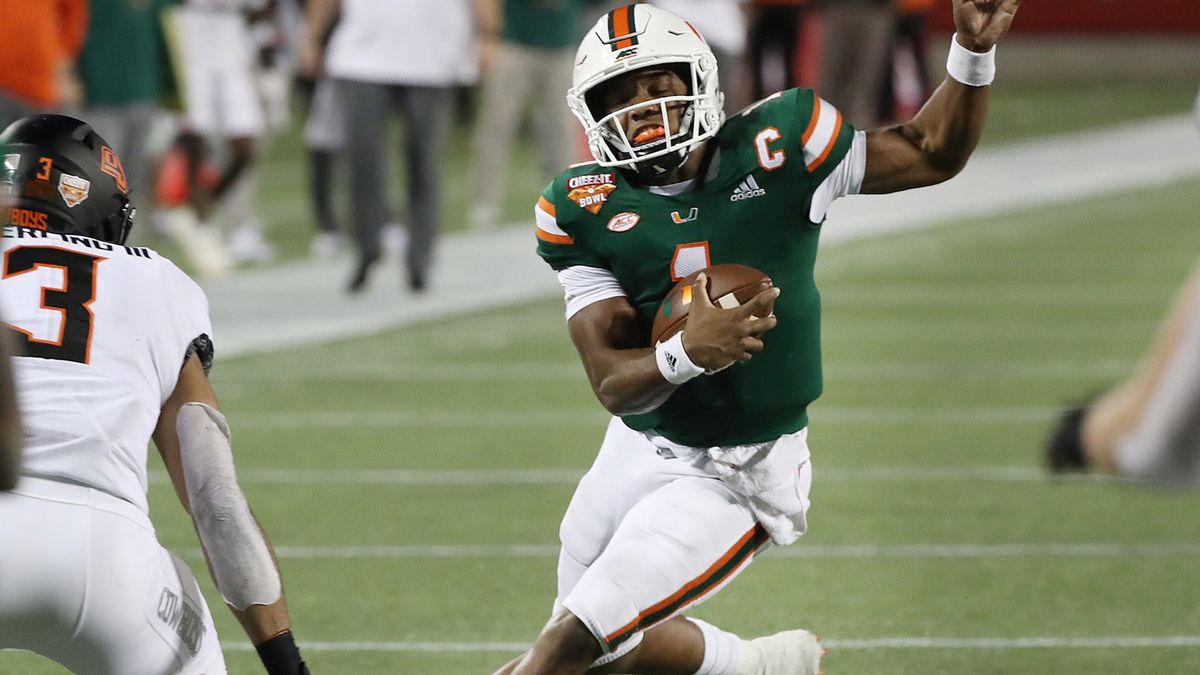
Many never thought this day would come – NCAA athletes are now able to legally earn money.
After several states put pressure on the NCAA by declaring name image and likeness laws would be implemented on July 1, the organization officially caved, giving way for athletes to finally make money from opportunities such as endorsements, autographs and charging for lessons.
While it is not a pay-for-play system that, as it sounds, pays the athletes for their athletic participation and accomplishments, athletes across all sports and divisions are now allowed to earn money through other means, something that was heavily prohibited before.
This move has universally been commended and acknowledged as long overdue, however, even though universities, athletes and companies alike saw this move coming for a few months – or, at the very least, in the 11 states that were set to have laws go into action July 1 – it seems like no one was ready when the day came.
In the week since, only craziness ensued.
Some athletes released logos, others signed endorsement deals, like Miami Hurricanes quarterback D’Eriq King who signed a deal for $20,000.
Barstool Sports, on a whim, started a new branch of the company which possibly endorses athletes, or gives them a platform, or maybe something else. No one really knows, including the company’s founder Dave Portnoy who tweeted that the idea was “the most barstool thing ever. No thought put into it. No clue what we were doing.”
That seems to be the consensus about everything happening in this new world of college athletics.
Even though the NCAA laid out a set of interim NIL guidelines, it feels like there is so much still up to interpretation.
Take for example the booster who is offering to pay scholarship football players at the University of Miami a total of nearly half a million dollars, equivalent to up to $6,000 a year for each player.
This is a pay-for-play deal masquerading as an NIL one. Who is to say the next billionaire booster won’t sign a deal with his or her favorite university, one that pays athletes hundreds of thousands a year? This would essentially lure every top recruit in the nation there and create a super team, one no other school could compete with. It would lead to a severe lack of parity and a competitive imbalance that would render all competition pointless.
What would ensue is a mass exodus of fans seeing no reason to spend their time and money watching a game with an all but predetermined result.
The NCAA should be stepping in to make rulings now before everything gets too out of hand. The longer they wait, the more irreparable the damage becomes.
That is not to say that what is happening with The U is necessarily bad, it just goes against everything the NCAA stands for and undermines their entire existence. College athletes – at the very least in revenue-generating sports – should absolutely be making money, but there still needs to be restrictions to maintain balance. For the NCAA’s sake, they must act promptly.
Yet, there are no signs that they will.
All they have done for decades was run collegiate athletics in a way that was so borderline criminal that the Supreme Court needed to get involved to fix their misdeeds. They now have a chance to fix it all and redeem their image, at least somewhat, by getting this right and putting in the work to make proper, fair and agreeable guidelines.
At this point, the NCAA has proved to be an antiquated and frankly useless organization. This past football season, while the country was busy being ravaged by a pandemic, universities, athletes and fans alike looked to the NCAA to decide how everyone should proceed, at least in terms of a football season.
When the pressure was on, the NCAA balked, putting on a grand display of ineptitude leaving everyone keenly aware of just how purposeless they actually were (and still are). In the dust of mediocrity left by the organization, individual conferences took over and proceeded to do all the dirty work themselves.
Given the organization’s track record, it won’t be long now until conferences realize they can run the show themselves and the NCAA as we know it is left in the past.
For more College Football coverage, click here.

Must See
-


Basketball
/ 3 years agoScouting Reports and Team Fits for 5 of the Top Prospects in the 2022 NBA Draft
Even with the NBA playoffs raging on into late May, eliminated teams have turned...
-


Athlete Profiles
/ 3 years agoSteven Kwan: Doubt Turned to Success
“The approach and frame show zero promise for game power. Despite having a hit...
By Matthew Suh -


Columns
/ 3 years agoBird’s MLB Season Predictions
Well, welcome back baseball! After a 99 day lockout, which pitted players versus owners...
By Ed Birdsall











